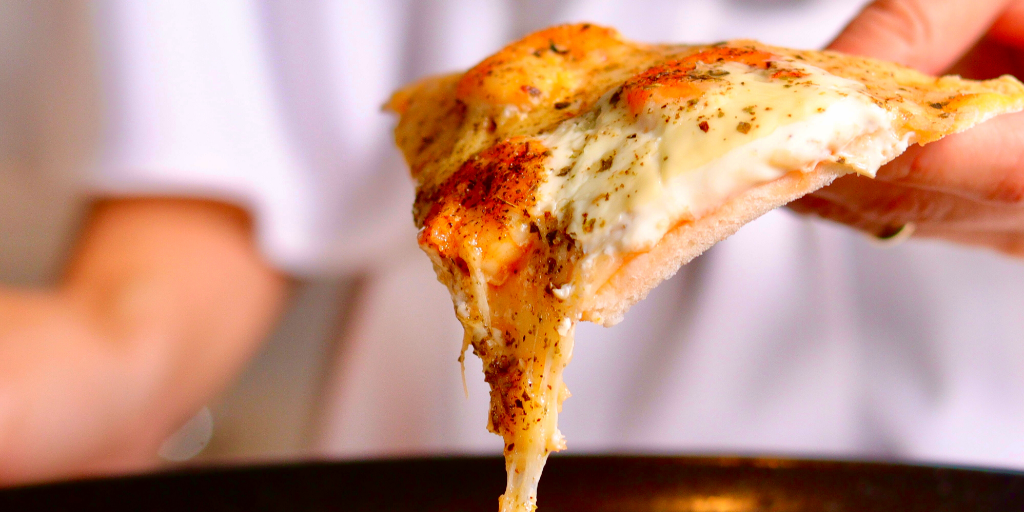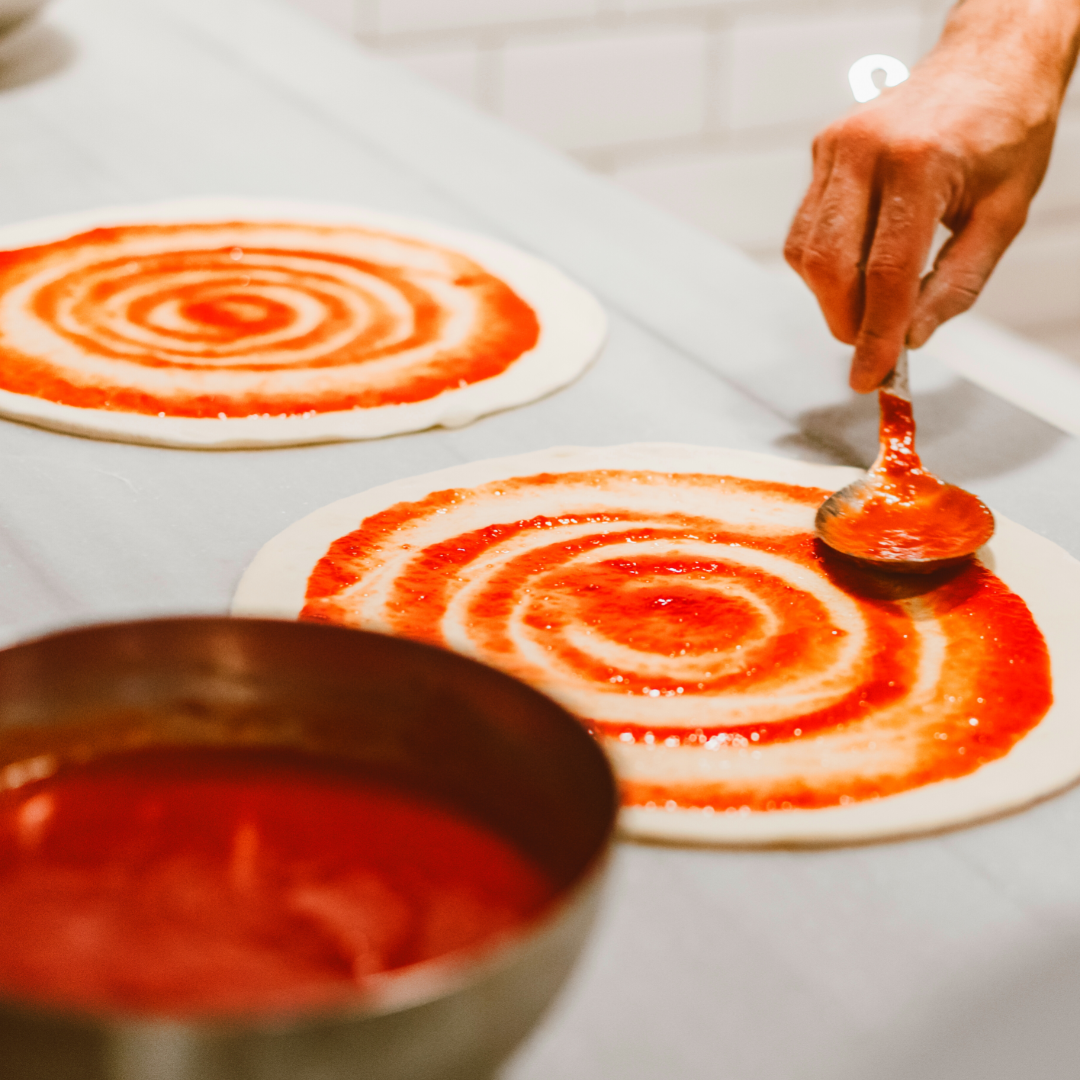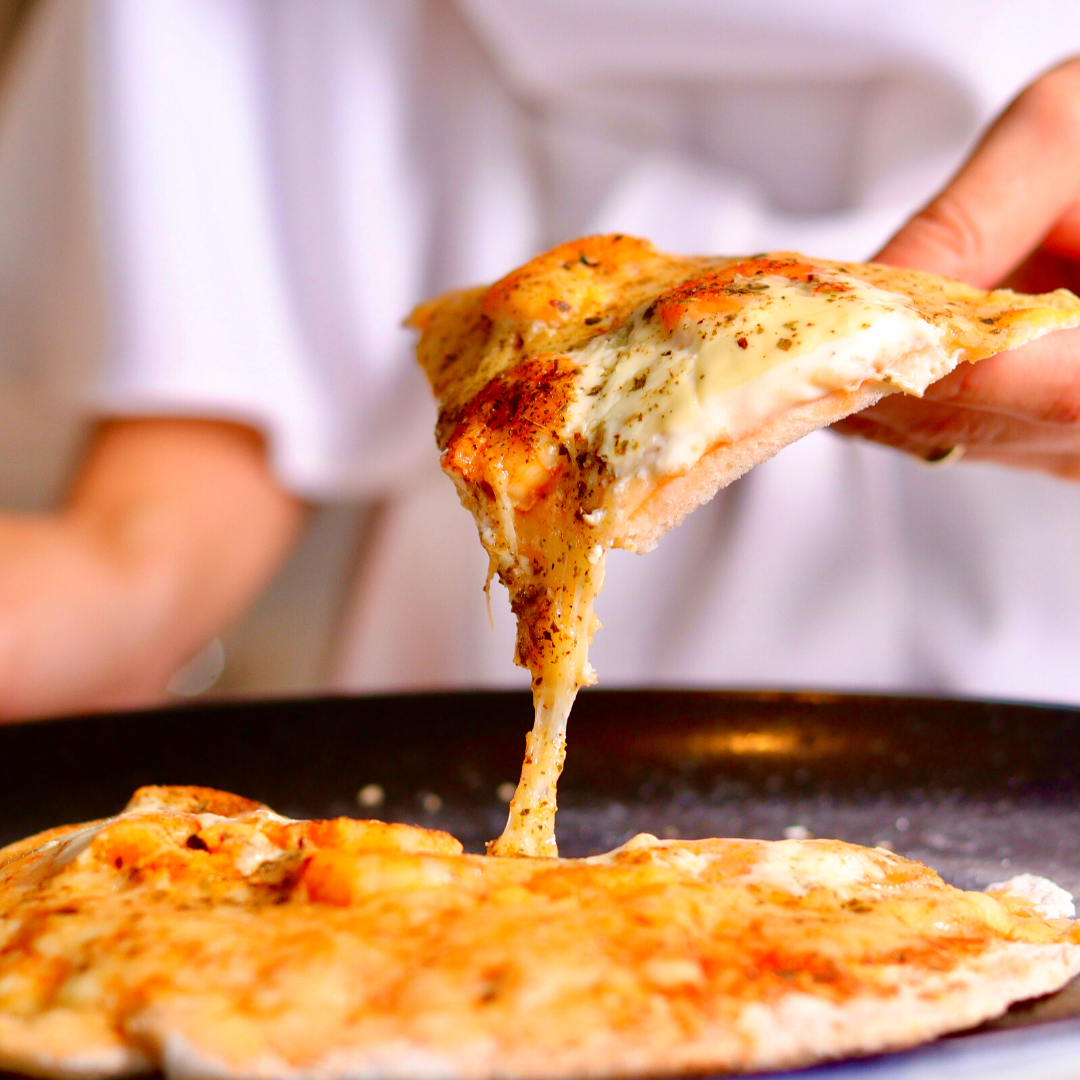
Kathryn Pasker Ineck discovers that when we focus on our imperfections, we miss the beauty of what we have accomplished.
Listening to a podcast and scrolling through my e-mails, I sat in my dark car parked in the driveway after returning from an errand. It was 7 PM on a Wednesday evening, and I was reluctant to go inside my house: I knew that strong opinions and conflicting needs would accost me the minute my hand touched the doorknob.
I gathered my things and my resolve and went inside … smelling the most delicious aroma. It was not the potato soup I had put in the crockpot earlier in the day, but something Italian and ah-maze-ing. My daughter popped her head out of the kitchen, a little apologetically. “Sorry, Mom. Rooster wanted pizza.”
First of all, I couldn’t actually eat the potato soup that I had prepared because I can’t have potatoes, so I was thrilled that she offered an alternative other than my usual scrambled eggs.
Second of all, if my youngest son requested a specific meal, we all dropped everything to fulfill his wildest wishes. With his food allergies and a distinct lack of interest in eating anything at all, we often play along with his whims, especially because they are few and far between.

Daisy had found a stash of gluten-free pizza crust mixes I had mistakenly ordered from Amazon months ago and discovered that evening that they were pretty much the bomb. She made four different pizzas to account for four different allergens: one without sauce or cheese and with turkey sausage (for the kid allergic to tomatoes, cheese, pork, and pineapple); one with sauce and sausage, ham, and turkey but no cheese for Digit and Rooster; and two with sauce, ham, pineapple, and cheese for the rest of us (don’t judge me—I love pineapple on my pizza. It’s also a great reminder of my friend Christopher, who decidedly did not and it makes me laugh that that’s what reminds me of him. Kind of like I get to have the last word. He would be proud that Rooster, his godson, doesn’t like it, either. But I digress).
Everyone was in raptures over Daisy’s success, and she accepted praise modestly as she soaked her blistered hand from accidentally brushing against the oven rack.
She was not aware of her success, though, as she pointed out all her failures: “I should have flipped the crust before I put the toppings on! I didn’t have any onion or peppers to add! The mozzarella fell to the floor and half the bag had to be thrown out (Mom, that’s a huge waste of money!) I burned my hand! I used too much oil!”

My heart hurt to hear her list all these assumed faults because she did a fantastic job—and because I could her my own voice in hers. Has she been listening all these years, hearing me find faults in myself? Or worse, is she parroting back negative feedback she has been receiving from me?
That’s the crux of life, isn’t it?
We are often so consumed by what we did wrong—or what we didn’t do at all—that we miss the beauty of what we have accomplished. Unwittingly, we often pass that uncertainty, self-doubt, and critical thoughts to our children.
Nothing ever seems good enough for ourselves.
Our task in this life is to try our best and accept the fruits. The negative thoughts and self-talk steal our peace, something that we are in desperate need of these days. It doesn’t take a philosopher to notice that our communities continue to be threaded with unrest and upheaval.
The Bible is filled with blessings of and advice for peace in both the Old and New Testaments. When Jesus appeared to the Apostles in the Upper Room for the first time after His Resurrection, his immediate greeting was “Peace be with you” (John 20:19).
We can’t even get through Mass without multiple opportunities to offer peace to one another and even quote Jesus’s words with the Sign of Peace from the Gospel of John: “Peace I leave with you; my peace I give to you” (John 14:27).
Peace within the community must start with the peace found within ourselves. We have to be open and willing to admit that we aren’t perfect and embrace our faults: in this way, we can accept our quiet, everyday victories and leave all the imperfections like chaff in the wind.

Copyright 2023 Kathryn Pasker Ineck
Images: Canva
About the Author

Kathryn Pasker Ineck
Married for more than two decades to her best friend, and mom of four teens, Kathryn finds that life is never boring. She pursues the heart of God--led by His gentle Mother--and relies on the Divine Mercy Chaplet, a desire for chocolate, and an insatiable thirst for reading into the wee hours of the morning. She writes to maintain her sanity at Kathryn Pasker Ineck.


.png?width=1806&height=731&name=CatholicMom_hcfm_logo1_pos_871c_2728c%20(002).png)
Comments